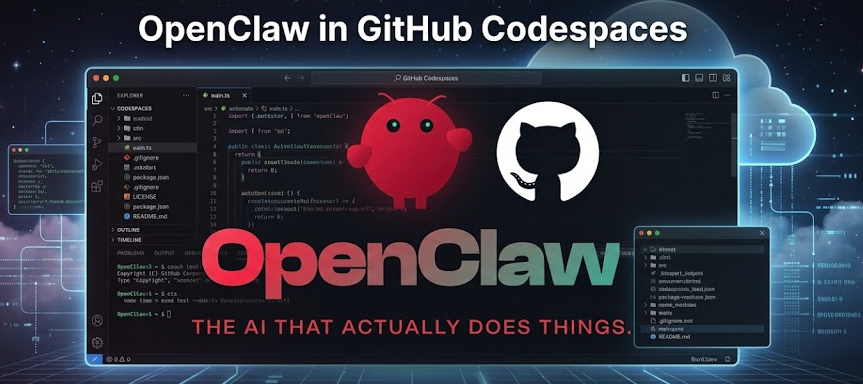Alita is an open source AI Intelligent Body project hosted on GitHub that focuses on dynamically generating and managing tools to accomplish complex tasks. It significantly improves task processing through an innovative MCP (Modularized Toolkit) mechanism, and performs well in GAIA benchmarks, 验证集pass@1达75.15%, 测试集pass@1达75.42%. Alita eliminates the need for predefined tools, and automatically creates and optimizes tools based on task requirements, making it suitable for users who need to flexibly handle diverse tasks. The project is developed by CharlesQ9 and has an active community that has attracted many developers to participate and contribute.

Function List
- Dynamic generation of MCP: Automatically create modularized toolkits based on task requirements to improve task resolution efficiency.
- High-performance task processing: pass@1 for 75.15% and 75.42% on GAIA validation set and test set, respectively.
- Web Browsing Optimization: Built-in upgraded web proxy function, 最新版本pass@1达68.11%.
- Data Processing Capability: Supports the processing of complex file formats, such as PowerPoint, to extract specific information.
- Open Source Collaboration: Provides a GitHub repository that allows developers to contribute code, ask questions, and optimize features.
- Cross-task adaptability: Adapt to multiple task scenarios, such as data analysis and document processing, without the need for preset tools.
Using Help
Installation process
Alita is an open source project based on GitHub, installation and use of which requires a certain programming foundation. Here are the detailed installation steps:
- clone warehouse
Make sure you have Python 3.x and Git installed on your computer. open a terminal and enter the following command to clone the Alita repository:git clone https://github.com/CharlesQ9/Alita.gitThis will download the Alita project locally.
- Installation of dependencies
Go to the project catalog:cd AlitaInstall the required Python packages. Projects usually provide
requirements.txtfile, run the following command:pip install -r requirements.txtIf this file is not available, refer to the project documentation or the
README.mdThe dependency statement in the - Configuration environment
Check if additional API keys or environment variable configurations are required (e.g. APIs for web browsing tools). In the project root directory, it may be necessary to create.envfile, add the necessary configuration, for example:API_KEY=your_api_keyPlease refer to the project for specific configurations
README.mdor official documentation. - Run Alita
Run the main program according to the project description. For example, suppose the main script ismain.py, can be run:python main.pyAfter a successful run, Alita will start and enter task processing mode.
Main Functions
At the heart of Alita lies the dynamic generation of MCPs (Modularized Toolkits) to handle tasks. Below is a detailed flow of how the main functions work:
Dynamic generation of MCP
Alita automatically generates tools based on input tasks. For example, when processing a PowerPoint file, Alita analyzes the task requirements (e.g., extracting the number of slides that refer to "crustaceans") and dynamically creates processing tools. The steps are as follows:
- Enter the task: Enter a task description in Alita's command line interface or API, e.g. "Count the number of slides in PowerPoint that mention crustaceans".
- Tool Generation: Alita automatically analyzes tasks to generate MCPs (e.g., a tool that specializes in parsing information from PPT pages).
- operate: Alita runs the generated MCP and outputs results such as "3 pages of mentions of crustaceans".
Users don't need to manually write tool code, Alita does the tool design and optimization automatically.
Web Browsing Optimization
Alita's web proxy feature supports efficient information retrieval and processing. 最新版本pass@1达68.11%. operation steps:
- Configuring the Web Proxy: Ensure that relevant dependencies (such as Selenium or Playwright) are installed. Enable the web proxy feature in the configuration file.
- Enter a query: Enter a web query task in the Alita interface, e.g. "Find the title of the latest AI paper".
- Result Output: Alita visits the target web page, extracts key information and returns results.
Users can get web agent optimization suggestions by submitting an issue or contacting the developer directly.
Data-processing capacity
Alita specializes in handling complex file formats, such as PowerPoint, PDF, and so on. Operational Processes:
- Uploading files: Place the files to be processed (e.g. PPT) into the directory specified by Alita or upload them via the API.
- mandate: Enter a specific task, such as "Extract pages in PPT that contain specific keywords".
- View Results: Alita generates the results and saves them to a specified path, or displays them directly in the terminal.
Featured Function Operation
Alita's MCP mechanism is its biggest highlight. MCP (Modularized Toolkit) is a set of tools that Alita dynamically generates based on the task requirements, which significantly improves the success rate of the task. Here are the details of how to use MCP:
- Initialize MCP: The first time Alita is run, it does not rely on a preset MCP, which is automatically generated and saved to the local "toolbox" after the user enters a task.
- Multiplexing MCP: Subsequent tasks can invoke the generated MCP to further improve efficiency. For example, when processing multiple PPT files, the previously generated PPT parsing tool can be reused.
- Optimize MCP: Users can optimize the MCP generation logic or manually adjust MCP parameters by submitting code to GitHub.
- View MCP results: After running, Alita outputs MCP's pass@1 and pass@3 metrics to help users evaluate the tool's effectiveness.
Community collaboration
Alita encourages developers to participate. Users can contribute in the following ways:
- Submit an Issue: Ask a question or make a feature request on GitHub, such as "Need support for PDF parsing".
- Submit a Pull Request: Optimize code or add new features by submitting them to the
https://github.com/CharlesQ9/Alita。 - Check for updates: Keep an eye on the project for the latest features, such as the May 28, 2025 web proxy upgrade (pass@1提升至66.78%).
application scenario
- academic research
Researchers use Alita to process academic data, such as extracting key information from a paper's PDF or counting the contents of a slide show.Alita quickly generates specialized tools, saving manual processing time. - automated test
Developers utilize Alita to validate AI model performance in GAIA test environments.Alita's high pass@1 rate makes it an ideal tool for testing complex tasks. - Web Data Crawling
Data analysts use Alita's web proxy feature to batch crawl web pages for information such as news headlines or product prices, suitable for market research. - Enterprise document processing
Business users use Alita to process large PowerPoint or Excel files, automatically extracting key data and improving work efficiency.
QA
- How does Alita generate an MCP?
Alita analyzes the task requirements and automatically designs and generates a modular toolkit (MCP) without the need for user predefined tools. Once generated, the MCP can be saved and reused. - Is programming experience required?
Yes, installing and configuring Alita requires basic Python and Git knowledge. But using the pre-configured Alita is as simple as entering a task description. - What file formats does Alita support?
Currently supports PowerPoint, PDF and other formats, the specific scope of support can refer to the GitHub documentation or submit an issue to confirm. - How can I get involved in Alita development?
interviewshttps://github.com/CharlesQ9/Alita, submit issue or pull requests, participate in code optimization or feature suggestions.



































